National efforts for business recovery
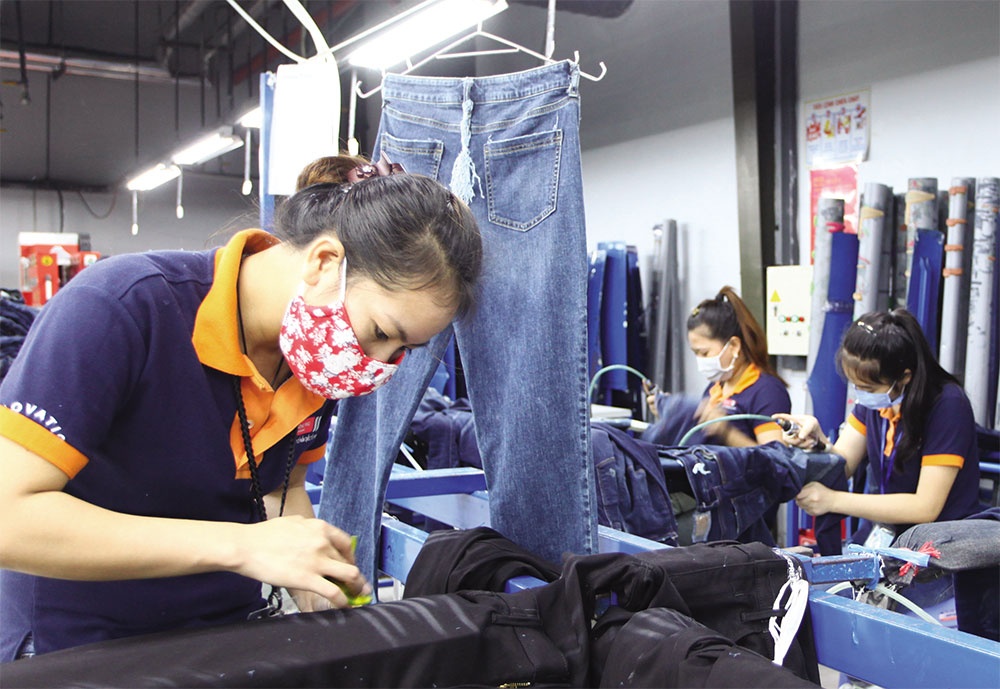 |
| National efforts for business recovery |
These growth successes also pose a challenge for the government to ensure an enabling environment for overseas investment, and especially funding that offers strong commitments to the country’s green goals. With Vietnam’s National Day taking place on September 2, business leaders offered their words about the country’s development outcomes thus far, and shared how they have weathered the storms and envisage future growth ahead.
| Jennie Hoang Phuong CEO D.lion Solutions & Media Group
Even pre-pandemic until present, blockchain technology has seen widespread application across Vietnam’s key sectors like financial services (83 per cent), supply chain (40 per cent), and public services (30 per cent). Furthermore, scores of firms in the banking, auditing, and insurance fields are working on blockchain technology application and development. Vietnam is among the five countries with the highest number of NFT (non-fungible token) users in the country at 2.19 million people in 2021, after Thailand, Brazil, the US, and China, according to the Statista Digital Economy Compass 2022. Foreign investors and investment funds have fairly open view about projects, businesses, and human resources coming from Vietnam as the booming development of GameFi projects in the past year shines a light on Vietnamese virtues such as sense of creativity, abundant tech-savvy human resources, and very high rate of population knowledgeable about and using high-tech products. If Vietnam succeeded in crafting a clear legal framework for projects developed on blockchain technology, this will help partly clear the doubts of investors and the public about blockchain application in the process of building and developing a business. Having in place a clear legal system would greatly support blockchain startups. The lack of legal framework makes startups feel nervous and put them in a defensive position because they do not know what will happen in the future. Not only in Vietnam, many countries lack clear regulations for blockchain, digital assets, NFT, and cryptocurrency. As technology changes rapidly, the regulatory framework must be adjusted to keep pace with technology evolution and ensure development is on the right track. | |
| Hang Pham Co-Founder and chairwoman BambuUP
Innovation was emphasised in the report of the Central Committee on the 12th National Congress of the Communist Party of Vietnam. Since then, it has been the focus of Vietnam’s socioeconomic policies. To help startups develop, it is important to promote open innovation by encouraging large corporations to open their ecosystems and business opportunities to startups. By 2025, 44 per cent of innovation will come from startups, nearly four times that of 2020 while innovation inside companies will drop from 69 per cent to 29 per cent, according to research published by MIT and Capgemini in 2020. This means that open innovation is the trend of the future that each company should not miss. Unfortunately, open innovation is still a new concept in Vietnam, so the challenge is to create awareness and willingness. As a digital platform that connects innovation providers and innovation seekers, we hope to widen the ecosystem and make innovation easy for businesses everywhere. Thus, we encourage the government to create suitable policies, such as tax advantages and technical support, to help promote mutual collaboration to boost the innovation ecosystem in Vietnam. | |
| Federico Vasoli Managing partner dMTV Global
Vietnam managed to grow in both 2020 and 2021, and we are happy that, despite all uncertainties, we also improved our on-year turnover. This year, however, is a different story. It started with great optimism but the Ukraine situation, China-US tensions, inflation and stagflation, logistics disruptions, and many more factors have been contributing to a generalised sense of total uncertainty and looming recession, which makes it almost impossible for businesses to plan ahead. Globalisation is and will not be over, but certain paradigms have indeed changed. One of them is the cost of selling overseas – hence Vietnam, as a manufacturing powerhouse within ASEAN, could and in my view should attract more manufacturing investments from abroad, or enter into manufacturing licensing agreements. This is especially so with Western companies, in order to serve the latter’s potential client base in the region. In an ideal world, having a factory in Vietnam, one in Europe, and one in the Americas could serve the majority of potential customers for non-sophisticated and non-territory related businesses. Meanwhile, clearer laws with fewer bureaucratic passages, and easier employment of foreign talents, would definitely boost socioeconomic richness and Vietnamese partners’ reliability in a world that is competing to attract foreign capital and people. | |
| Stuart Livesey CEO, La Gan Wind Power Development Corporation
The latter half of 2021 and the first half of 2022 have proved to be an extremely exciting and dynamic time for Vietnam in terms of business focus on renewable energy with the continued development of the long overdue Power Development Plan VIII (PDP8). Both Copenhagen Infrastructure Partners and Copenhagen Offshore Partners are developing a pipeline of several gigawatt-scale offshore wind projects in Vietnam, most notably the 3.5GW La Gan project in the south-central province of Binh Thuan. We are fully committed to support this new industry and its growth in the country. A focus on the need to support Vietnam’s commitments at COP26 requires clean and sustainable energy, and offshore wind can play a critical part by harvesting the excellent wind resources Vietnam has to meet the future energy demand and renewable targets. Much has been completed and undertaken in this last year as Vietnam adapts itself to deliver a new and exciting offshore wind industry, however there is still much to be delivered. A thorough focus has been made on the PDP8 with much needed scrutiny and analysis. However, now is the time to make decisions and seek an approval, so the next decade can progress to meet targets for 2030 and beyond. There is a great need for further cooperation and alignment between ministries to finalise the new amendments to decrees 11 and 40 for offshore survey work to commence, and allow offshore wind projects to be delivered on time, and for the supply chain to cope with this demand. This cooperation would also ensure that these plans can be implemented with clear and robust mechanisms to deliver the first pioneering pilot projects which can then set a solid foundation for the growth of the industry (supply chain, jobs) and to satisfy the energy demand in the upcoming years. In short, good progress has been made, but much more focus and commitment is needed in a short period of time if we are to meet renewable energy targets set for 2030 in PDP8 and net-zero targets for 2050. | |
| Tharabodee Serng-Adichaiwit General manager Bangkok Bank Vietnam
Vietnam now is under the spotlight of investors as the most prosperous economy in ASEAN. During the past few months, I have already met hundreds of Thai investors who want to do business in Vietnam. The Vietnamese government has carried out a good job providing support to the economy throughout the coronavirus pandemic via various VAT reductions, interest subsidy, accelerating on infrastructure improvements, and more. All the fund spending to support the economy not only helps enterprises overcome difficulties at the right time but also leads to the development of new growth in the future. With so many uncontrollable challenges in the world currently, I believe companies need to play safe first. They should not raise unnecessary debts, and closely monitor costs of raw materials and logistics, as well as trying to expand to new markets for alternative. Vietnam’s local consumption is growing and exports are also doing very well. Hence, in the remainder of 2022 and beyond, we are focused on preparing capital for new investment after the situation stabilises, which we hope for as soon as possible. | |
| David Salt Director of Enterprise Services LOGIVAN Technologies
The government’s pivot from full pandemic restrictions back to normality for travel, business, and everyday life has been a great help to Vietnam’s recovery. Now a combination of factors is causing procurement difficulties for many of our clients. In particular, with global commodity prices both high and unstable it can be difficult to secure sufficient raw materials on time and on budget. However, there is positive news too. Recent reductions in fuel prices from last month’s peak have helped to reduce transportation costs. Whilst they’re higher than before the pandemic, both land, sea, and air transport rates are seeing steady reductions. So now is likely to be the best opportunity of the year to negotiate transportation rates for your company to ensure logistics providers are passing on savings in line with the market movements. We have adapted to the fuel price volatility by implementing smart contracts to automatically update the price for our enterprise logistics clients, ensuring the price is always up-to-date in line with the latest best-in-market price level. On the road to recovery, we support increasing investment into road and port infrastructure that will help businesses to remain competitive in global markets and grow sales through 2022 and beyond. | |
| Nguyen Huu Hieu CEO FiinGroup Vietnam
The government has managed to maintain a stable political setting and a resilient macroeconomic environment during the 2021-2022 period. Small- and medium-sized enterprises were hardest hit by COVID-19, but many have received timely support from the government. We faced difficulties as our customers encountered challenges posed by the pandemic including the inability to travel and disruption of the global supply chain. We have contracted our operations and focused more on team building and process improvement in the meantime. Good investment inflow to Vietnam has been possible thanks to the stability of the political and macroeconomic environment, and the relentless efforts of the intermediaries including business connectors, advisors, lawyers, and negotiators. These intermediaries are, however, often under the radar and not properly recognised by authorities. Therefore, we would like to see more pragmatic policy initiatives recognising and encouraging the intermediaries in facilitating, serving, and attracting large investors into Vietnam. The government should embrace a more enabling legal framework that allows better access to relevant national databases and business information. | |
| Thue Quist Thomasen CEO YouGov Vietnam
Thanks to the growing consumer class and dynamic workforce, Vietnam has become an attractive place for foreign investors, including Nordic businesses. By September 2021, there were 315 projects with a total registered investment of approximately $1.1 billion coming directly from investors of Nordic countries. These financiers have invested in a wide range of business activities such as textiles, IT, logistics, food and beverages, renewable energy, and healthcare. Through these investments, Nordic companies contribute to the sustainable development of Vietnam’s economy. Vietnam is also promoting green economic growth objectives. This, at the same time, poses a challenge for the government to create an enabling environment for foreign investment, particularly, from Nordic companies, that demonstrate a strong commitment to net-zero or very low emissions. The investment environment in Vietnam is friendly and fair to foreign investors, while foreign companies have contributed to Vietnam’s growth. I think what’s really impressive in Vietnam is the steady growth of 6 -8 per cent per year. Maintaining this growth is a huge success, far greater than achieving this growth for a while and then stopping. | |
| Rahul Shinde Chief information officer Coca-Cola Vietnam
Vietnam has made amazing developments across the board over the previous three decades. The country boasts a fast-growing middle-class population and sizable youth demographic. As a result of its impressive GDP growth rate and a focus on rapid moderisation, the country is poised to become a pivotal force in Asia’s future. From the perspective of a professional working in the food and beverage market, I believe that as the Vietnamese economy begins to recover, long-term patterns will bode well. A larger segment of the Vietnamese population is now able to afford to follow global trends like eco-friendliness and healthy eating. Thus, international brands are seeking ways to capitalise on this trend by bridging the gap, offering healthier alternatives on the market. I hope Vietnam’s Independence Day renews the country’s commitment to long-term stability, growth, and prosperity. | |
| Tin Nguyen Co-founder and CEO Polaris Infosec
As a cybersecurity company, we always look at business growth in terms of how organisations continue to protect the resources they use to execute their missions - driving sales and revenue, marketing their brand, and growing their teams and operations. Everyone is growing in tech reliance for these purposes without understanding the dangers of it, so the Vietnamese government is stepping in. Vietnam as a whole is still very much unaware of risks posed by breaches of confidential data, so initiatives are being pushed by the government to protect its businesses because they do not protect themselves. The government is moving in the right direction in terms of developing much-needed policies for cybersecurity such as data privacy regulation. Currently, there are no regulations that mandate the safe practice of managing, storing, and transferring confidential user data, whether personally identifying information or financial, but the new decree that will hopefully be published later this year will address that. The government realises that economic development can be negatively influenced by cyber-attacks that continue to target businesses of all sizes, especially as they seek global cooperation with organisations that mandate partners achieve certain compliance standards. | |
| Tadahiro Kinoshita General director Sojitz Vietnam Co., Ltd.
Vietnam has achieved high economic growth compared to neighbouring countries and, in the last year, we could feel the underlying strength of the country through surprising resilience, especially in terms of the economy. While the government continues to take key measures to prevent and control the pandemic, the government remains open to domestic and international economic activities and trying to revive the economy. We can feel clearly such amazing energy. On the diplomatic front, 2023 will be the 50th anniversary of the establishment of diplomatic relations between Japan and Vietnam – an extremely important year for Japanese companies like ours. When looking back on the relationship, we would like to connect and cooperate even more closely to create new value with an eye to the future and from a global perspective. In commemoration of the anniversary, we have a plan to start operating a joint venture with Vinamilk in the production, processing, and sale of beef in the northern province of Vinh Phuc. We are also considering the exportation of products in the near future. During this development, we hope the government will further improve the legal system to enhance a favourable climate for firms to operate existing businesses and develop new projects. | |
| Ywert Visser Vietnam country director The Schippers Group
We are a new entrant to the Vietnamese market. We saw the potential of this nation from 2020 and when travel restrictions lifted earlier this year, we moved quick. We hired a local team and established an office in Hanoi. The process of setting up our company in Vietnam has been smooth and straightforward. We also receive warm support from the government. Just two weeks ago Ambassador Pham Viet Anh visited our headquarters in the Netherlands. During the visit, we had an open discussion about the challenges and opportunities in the Vietnam livestock industry. Our company empowers Vietnamese livestock farmers to optimise farm hygiene, eliminating the need for antibiotics while increasing animal health and profitability. This is very important as Vietnam is ranked as one of the countries with the highest antimicrobial resistance (AMR) rates in the world. Because of AMR, a growing number of common infections are becoming harder and sometimes impossible to treat. Eighty per cent of antibiotics are used in animal husbandry. Improving hygiene management in livestock farming is one of the fastest ways for Vietnam to reduce AMR – and improved hygiene results in healthier animals and thus a reduced need for medication. | |
| Yerkin Tatishev Founder and chairman Kusto Group
In the last 10-15 years, Vietnam has made miraculous changes in an ecnomic sense. We have worked with many partners in this country across different industries, and I see that to develop further, the country needs to have leading companies in every industry. The Vietnamese government has a policy of investing heavily in infrastructure and encouraging the participation of non-state companies. Infrastructure systems such as roads, airports, bridges, ports, and others in the long term will create a solid growth engine for Vietnam. In addition, the country has a dynamic, positive, and energetic working environment with an increasing number of young entrepreneurs and startups. Vietnam’s economy is currently growing at a good rate. The relatively low inflation is especially one of the advantages of Vietnam in the context of high inflation globally, such as Kazakhstan currently at 16 per cent and Europe also in double digits. This country has the strengths to stabilise the macroeconomy and develop the economy. It has experienced rapid growth over the years, but I believe that Vietnam still has special advantages to continue to grow stronger in the coming time. |
What the stars mean:
★ Poor ★ ★ Promising ★★★ Good ★★★★ Very good ★★★★★ Exceptional
Related Contents
Latest News
More News
- Vietnam sets ambitious dairy growth targets (February 24, 2026 | 18:00)
- Masan Consumer names new deputy CEO to drive foods and beverages growth (February 23, 2026 | 20:52)
- Myriad risks ahead, but ones Vietnam can confront (February 20, 2026 | 15:02)
- Vietnam making the leap into AI and semiconductors (February 20, 2026 | 09:37)
- Funding must be activated for semiconductor success (February 20, 2026 | 09:20)
- Resilience as new benchmark for smarter infrastructure (February 19, 2026 | 20:35)
- A golden time to shine within ASEAN (February 19, 2026 | 20:22)
- Vietnam’s pivotal year for advancing sustainability (February 19, 2026 | 08:44)
- Strengthening the core role of industry and trade (February 19, 2026 | 08:35)
- Future orientations for healthcare improvements (February 19, 2026 | 08:29)



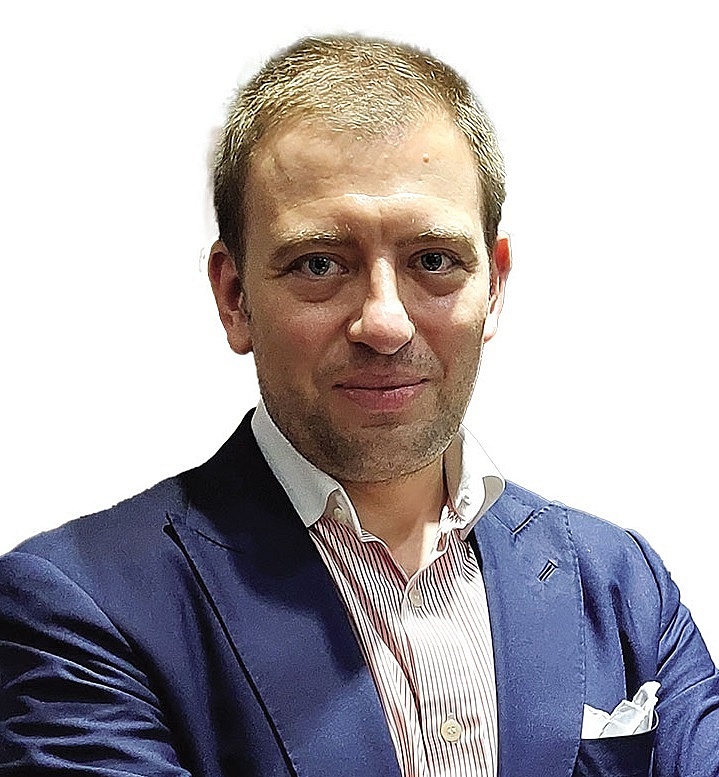

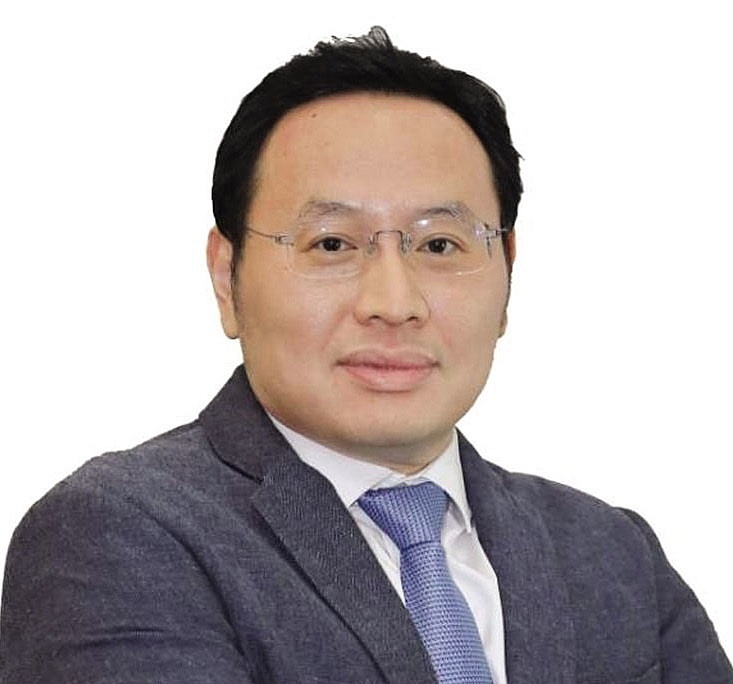

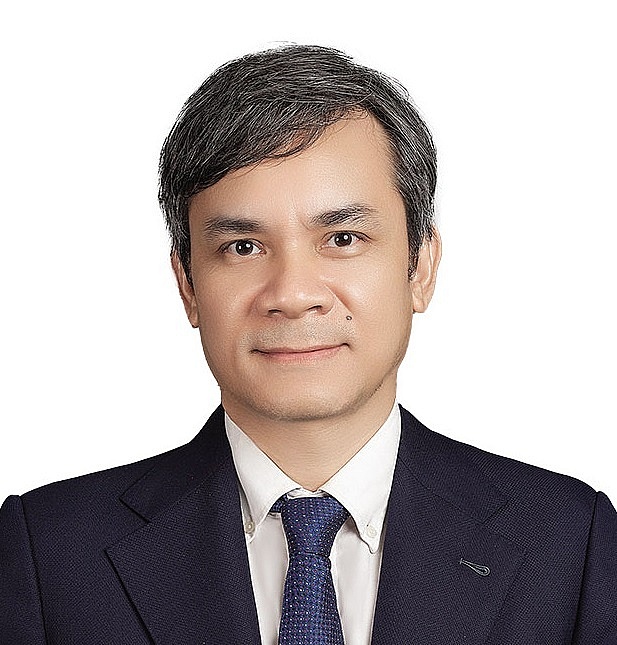



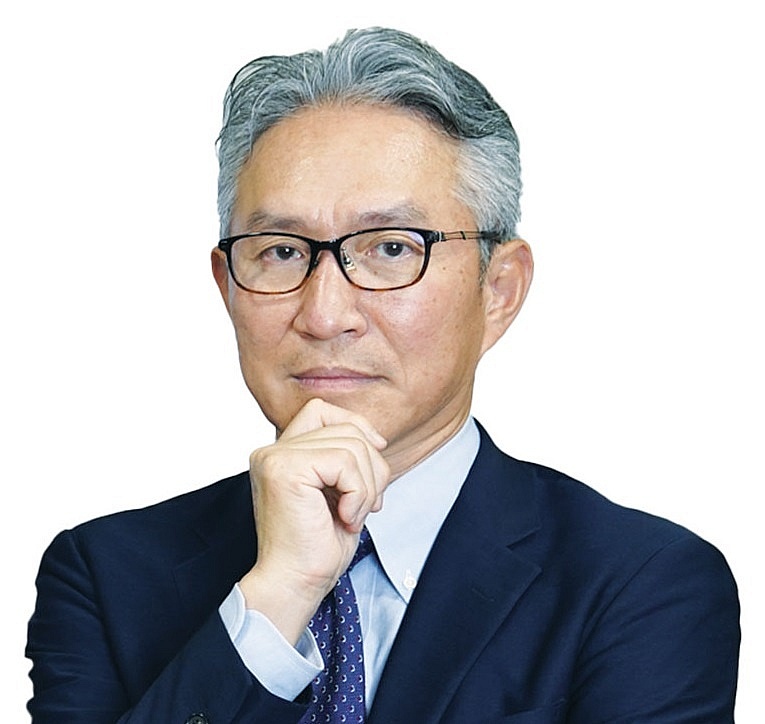


 Tag:
Tag:



















 Mobile Version
Mobile Version